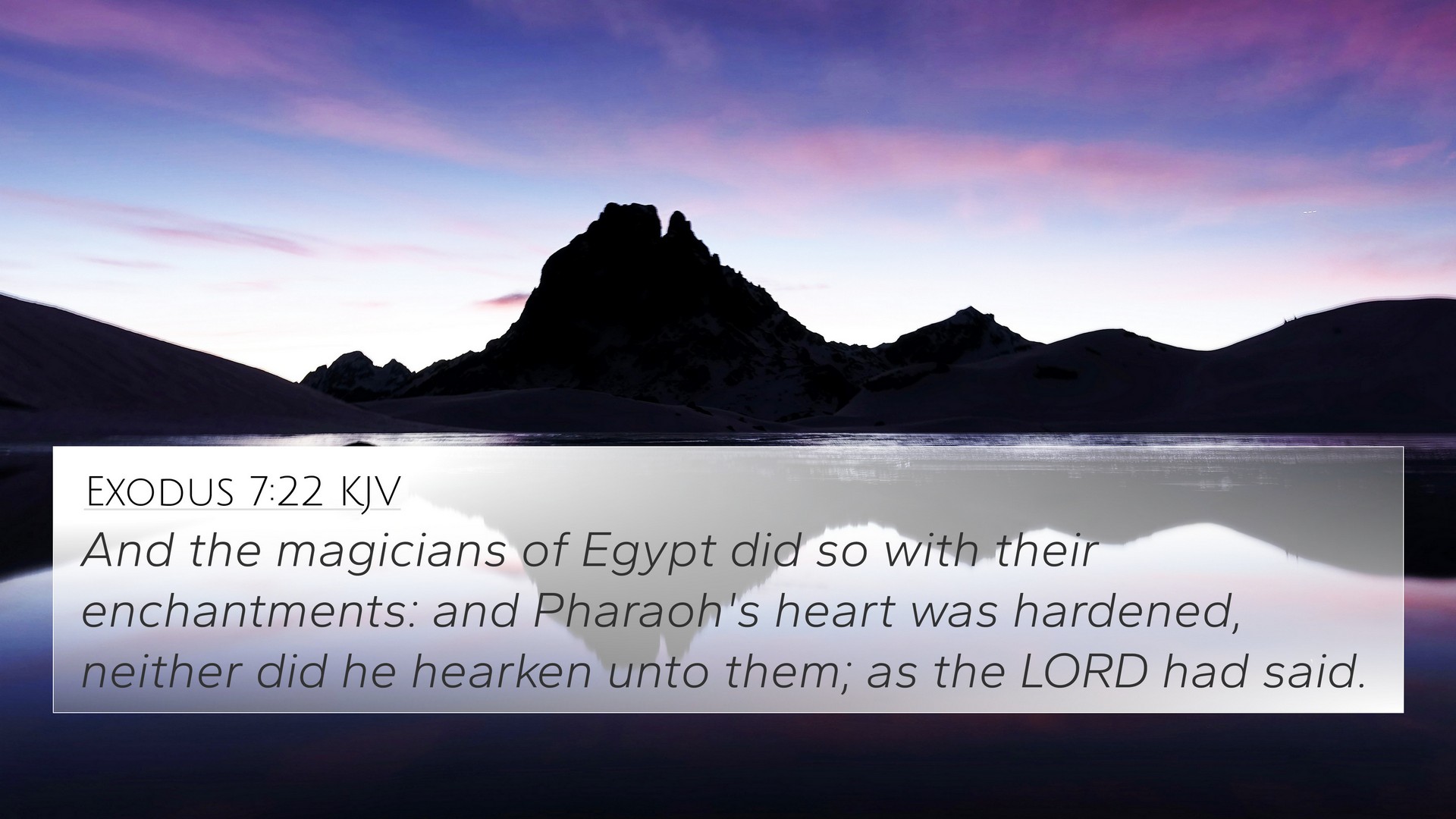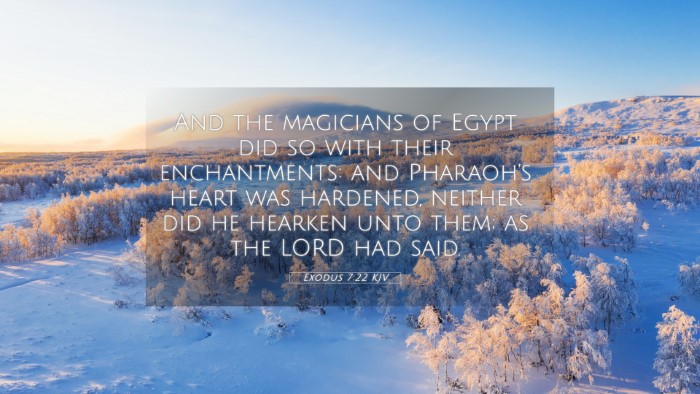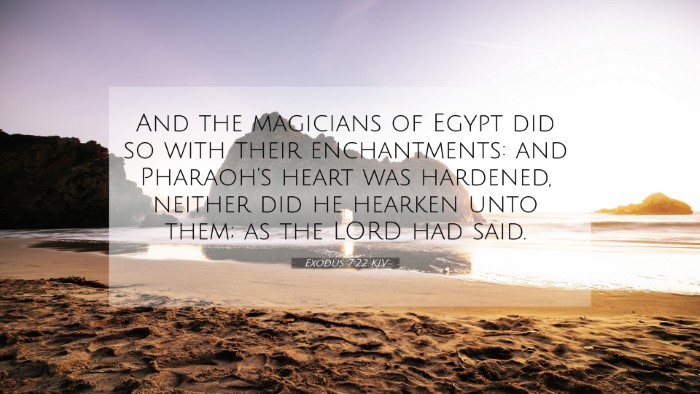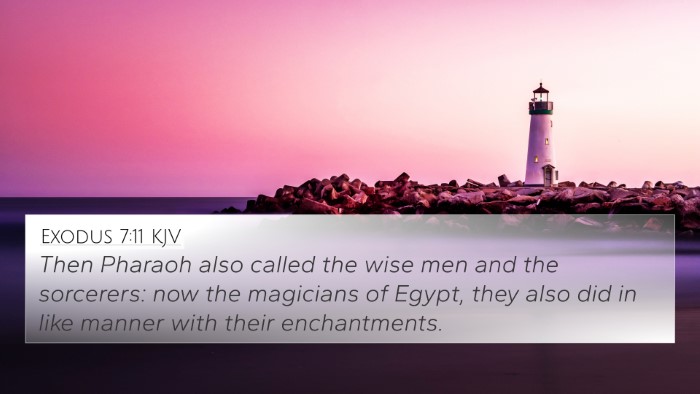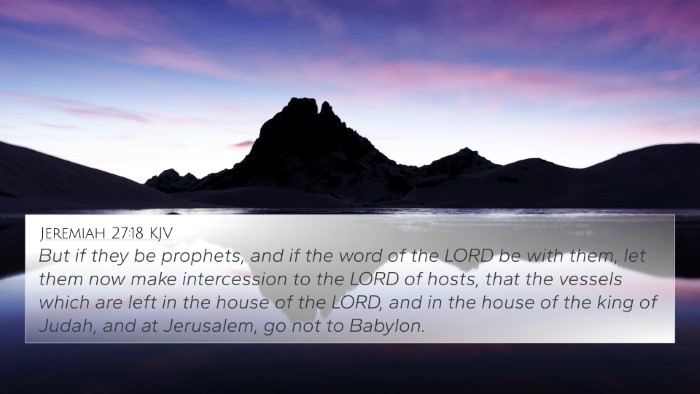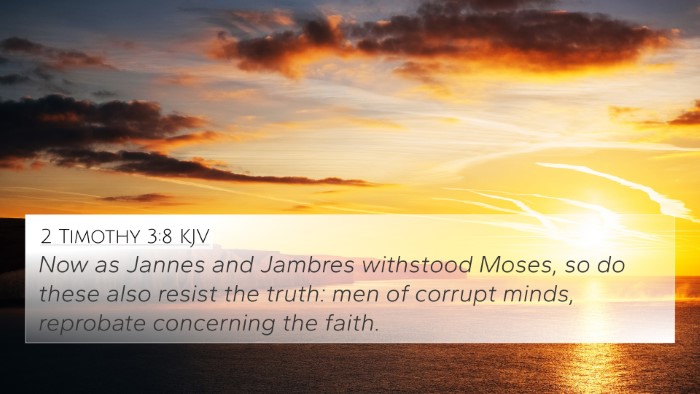Understanding Exodus 7:22
Verse Reference: Exodus 7:22 - "But the magicians of Egypt did the same by their secret arts. So Pharaoh's heart remained hard, and he would not listen to them, as the Lord had said."
Context of Exodus 7:22
This verse occurs during the Plagues of Egypt when Moses and Aaron confront Pharaoh, warning him of God's impending judgments. The magicians' ability to replicate the wonders of God continues to harden Pharaoh's heart, leading to a cycle of defiance against divine authority.
Summary of Commentary Insights
- Matthew Henry's Commentary: Henry emphasizes the importance of the miracles as a divine testament establishing God's authority over Egypt's false gods. The hardness of Pharaoh’s heart exemplifies human resistance to divine revelation and truth.
- Albert Barnes' Notes: Barnes points out that the Egyptian magicians were able to perform similar signs not because they held power equal to God, but rather through dark arts. Their success temporarily bolstered Pharaoh's pride and disbelief.
- Adam Clarke's Commentary: Clarke notes the significance of Pharaoh’s rejection as it indicates a broader theme of hard-heartedness prevalent in leaders who oppose God's will. His analysis suggests a stark warning against the danger of rejecting divine signs.
Thematic Connections
Exodus 7:22 is rich in themes related to human rebellion against God. It highlights:
- The power struggle between God and the Egyptian sorcery.
- The divine sovereignty displayed through uncontested signs and wonders.
- The consequences of a hardened heart contrary to God’s will.
- The importance of heeding God’s message despite contrary signs.
Cross-References for Exodus 7:22
This verse connects with several other scriptures:
- Exodus 7:11-12: The magicians' duplicating signs reinforce the theme of deception.
- Exodus 8:18-19: The magicians' inability to replicate the third plague of lice signifies the limitation of their powers.
- Romans 1:21: Highlights the futility of suppressing the truth, paralleling Pharaoh's rejection of God's evident signs.
- 2 Thessalonians 2:9-10: Discusses the workings of false wonders and deceit, emphasizing the ultimate rejection of the truth.
- Revelation 16:14: Addresses the spirits that perform signs, connecting to themes of spiritual deceit.
- Matthew 12:24: Where the Pharisees attribute Jesus' miracles to Beelzebul, reflecting a similar rejection of divine power.
- Acts 8:9-10: Sorcery practiced by Simon Magus illustrates the existence of rival powers that mimic God's authority.
Practical Application
Understanding Exodus 7:22 facilitates believers in reflecting on their own receptivity to God's messages and wonders in their lives. This passage encourages:
- Discernment: Identifying true divine works versus misleading signs.
- Humility: Recognizing our vulnerability to pride and hardened hearts.
- Faithfulness: Remaining steadfast in truth despite external influences.
Conclusion
Exodus 7:22 serves as a reminder of the potent struggle between divine truth and human willfulness. Through examining commentaries from Matthew Henry, Albert Barnes, and Adam Clarke, readers can gain deeper insights into the implications of hard-heartedness and the importance of accepting divine revelation.
Further Study Suggestions
For a structured approach to understanding this verse and others like it, consider utilizing the following:
- Bible Concordance: A searchable tool for finding related passages and meanings.
- Bible Cross-Reference Guide: A comprehensive resource to link themes across scripture.
- Cross-Referencing Bible Study Methods: Techniques to deepen understanding through associated verses.
